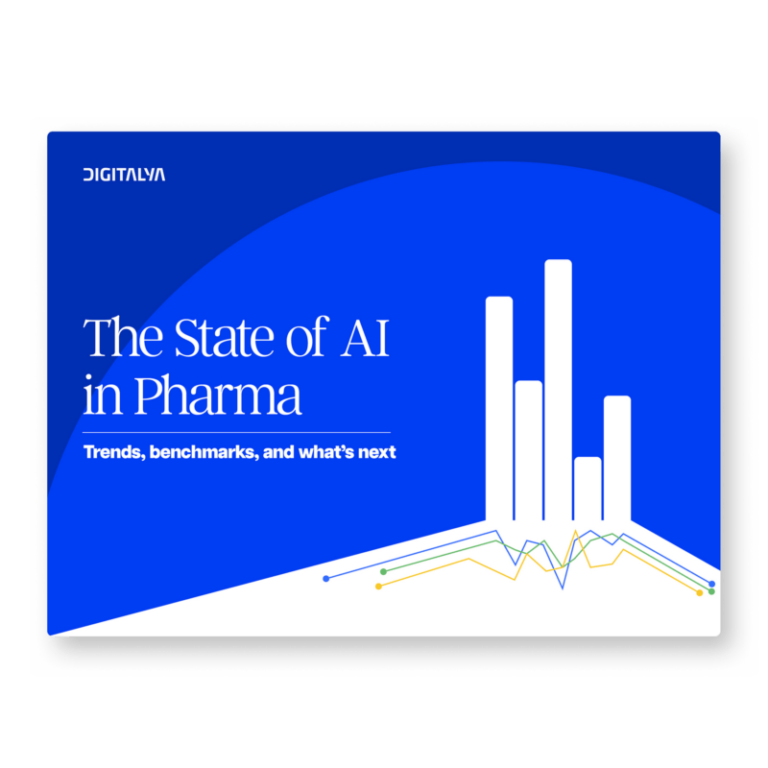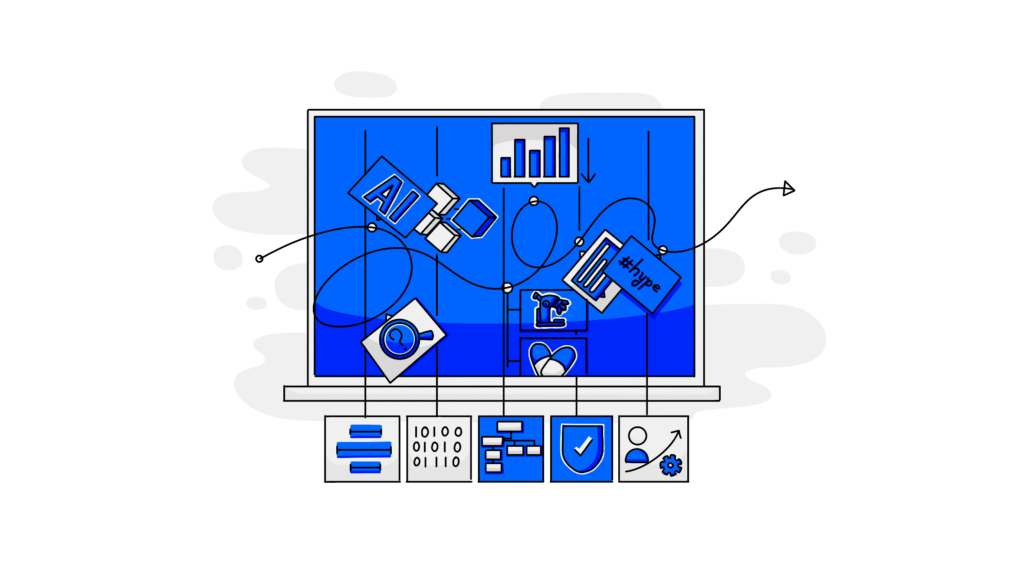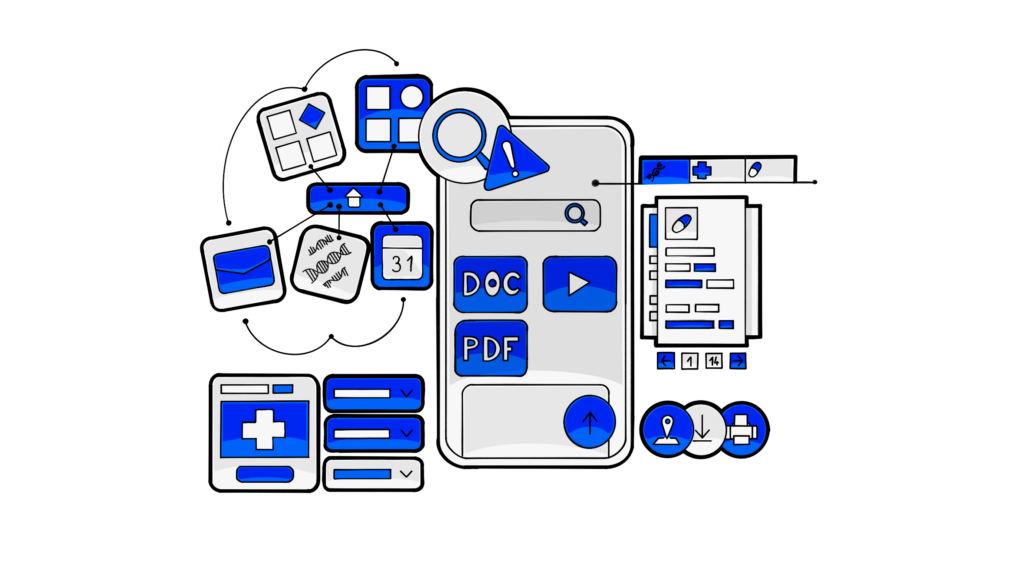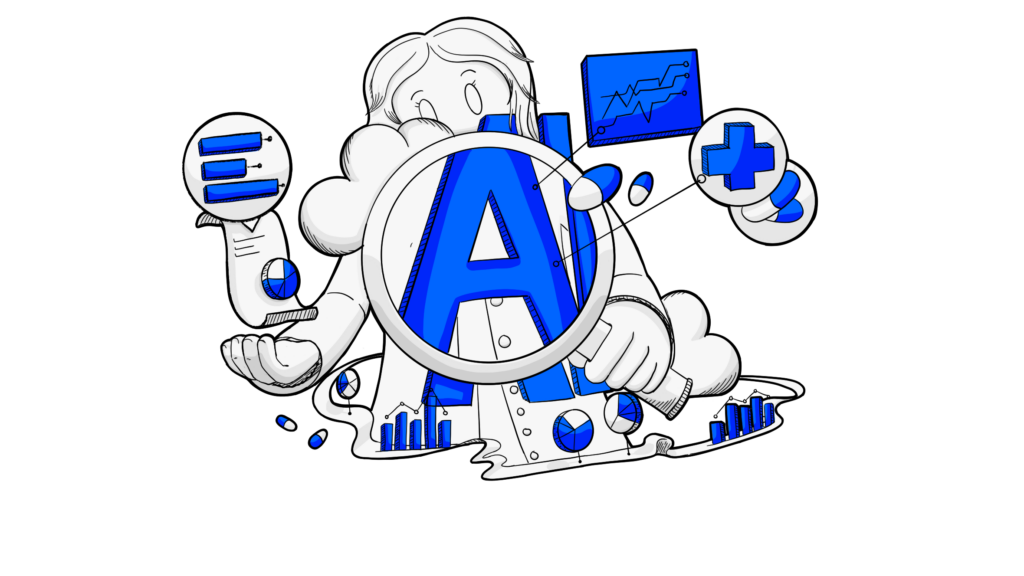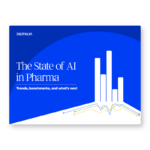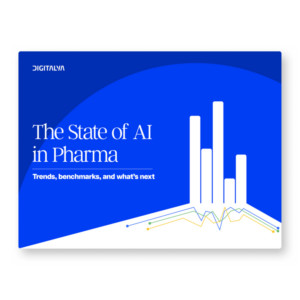In today’s rapidly evolving healthcare landscape and pharma industry, where medical advancements and knowledge are constantly expanding, the concept of lifelong learning has taken on renewed significance.
For healthcare providers (HCPs), staying up-to-date with the latest medical research, treatments, and industry insights is not just a professional responsibility but a necessity. In this digital age, where information is readily available, the role of dynamic content for HCP portals has emerged as a powerful tool in empowering HCPs with continuous learning opportunities.
1. Introduction
1.1 The importance of lifelong learning for healthcare providers
Healthcare professionals can’t and shouldn’t rely solely on the knowledge they gained during their studies and professional training. Advancements in medicine make it mandatory to keep learning about what’s new so they can provide the best possible care to their patients.
As medical knowledge evolves, HCPs must keep pace with the latest treatments, technologies, and research findings. Embracing a mindset of continuous learning will improve patient outcomes, as well as contribute to professional growth and satisfaction, and accelerate innovation. Having easy access to relevant content has become ever so important, and HCP portals play an important part.
1.2 The role of dynamic content in empowering HCPs
Dynamic content for HCP portals is a game-changer in facilitating lifelong learning. Unlike static content, it adapts and evolves based on user interactions and preferences. This means that HCPs are presented with personalized, relevant, and up-to-date information that engages HCPs through an enriching learning experience.
Providing adaptive content is also an important element of omnichannel marketing in healthcare. By creating such customized experiences, you are more likely to motivate the target audience to grow attached to your brand.
1.3 Technical overview: introducing dynamic content to HCP portals
HCP portals have been embraced by an increasing number of pharmaceutical companies as part of their omnichannel communication. Still, it appears that HCPs aren’t so keen on using these pharma-sponsored portals, mostly because of usability downfalls.
The idea of creating and delivering dynamic content for HCP portals is a good one, with lots of potential to support sales and marketing. But in order to create valuable professional engagement when building an HCP portal, you need also to provide an excellent user experience.
2. Understanding dynamic content
Now, let us better grasp the principles of dynamic content and how it fits in the healthcare industry and, in particular, in content marketing.
2.1 What is dynamic content?
At its core, it is content that changes based on various factors, such as user behaviors and preferences, location, and real-time data. It is a step forward from traditional static content that remains unchanged regardless of the user’s context. Dynamic content leverages data analytics to provide tailored experiences, making it particularly valuable for HCPs seeking continuous education.
This type of content also encompasses a range of digital content, including articles, videos, interactive modules, quizzes, and more. It goes beyond one-size-fits-all approaches, ensuring that HCPs receive content that aligns with their specific interests and needs. These customized interactions enhance engagement and retention of knowledge.
2.2 Benefits of dynamic content for HCPs
Of course, creating such digital experiences for healthcare professionals requires serious effort. Starting with HCP profiling, then operating with healthcare data and tailoring a personalized interaction for real-time customer engagement – you need to understand the benefits that justify such an endeavor. Basically, the more valuable to your target audience, the higher the customer engagement, the greater value for your company.
Strengthening relationships with HCPs: In a 2021 study by Accenture, it was pointed out that HCPs seek more „truly helpful” content and are more sensitive to spamming from pharma companies following COVID-19. The same study showed that 80% of the HCPs interviewed were twice as open to new pharma reps and companies that offered the equivalent of their best relationship.
Building brand reputation: when you approach dynamic content as part of your omnichannel Healthcare strategy, you also send the message that your company is up to date with the latest trends and clinical data in healthcare. Beyond your preoccupation with educating HCPs, you also show interest in improving patient outcomes.
Scaling with agility: HCP portals that provide dynamic content, together with or as part of a healthcare omnichannel platform, can empower your pharma company to scale by accessing new niches in the pharma market and reduce time-to-market for new products.
2.3 Technical considerations for implementing dynamic content
Customer data: Personalizing experiences requires good knowledge of the user profile. For this, efficient data management is mandatory. You need to have accurate details about HCPs’ learning preferences and styles, user behavior, or the type of content they favor. Leverage other omnichannel technologies that you use in order to identify each HCP’s preferences and needs.
Up-to-date content: To ensure continuous HCP engagement with your portal, make sure to constantly and consistently provide relevant content. Get the latest news about advancements in medicine, pharma, and the healthcare industry. A healthcare professional would want to know about a relevant clinical trial in his field, new treatments for infectious diseases, and announcements for live events or hybrid events on a topic of interest.
User experience: just as in any deployment of omnichannel strategies, the ease and friendliness of HCP interactions with the portal are crucial in ensuring further engagement.
3. Personalizing learning journeys
We talk about different learning styles for children and students and how important it is to adapt the teaching to various learning profiles. As we grow into adults, we fall under the impression that these learning styles don’t apply anymore. When it comes to the learning process at an adult age, there aren’t many options regarding the methods.
That may also be because, as adults, we tend to focus less on learning. But healthcare professionals do need to keep on learning, and how they do it matters a lot. Providing content that is adapted to each one’s learning needs is mandatory to keep HCPs engaged with your brand.
Implementing it, on the other hand, requires sophisticated algorithms that analyze user behavior, preferences, and historical interactions. These algorithms enable the platform to suggest content that aligns with an individual HCP’s learning journey.
3.1 Customized content recommendations
Machine learning algorithms are crucial in suggesting content based on an HCP’s past interactions. By analyzing content consumption patterns, the platform can provide tailored recommendations, increasing the likelihood of HCP engagement.
3.2 Tailoring content based on specialty or interest
Dynamic content enables portals to categorize and tag content based on specialties, allowing HCPs to explore topics that are directly relevant to their fields. This specialization enhances the overall learning experience.
3.3 Implementing personalization algorithms
AI and machine learning algorithms continuously learn from HCPs’ interactions and adjust content recommendations accordingly. This iterative process ensures the content remains fresh, engaging, and aligned with each user’s learning goals.
4. Dynamic news and medical updates
Another relevant topic for any healthcare professional is the latest developments in their field or connected areas. A pharma company that includes comprehensive scientific materials or prescribing information in its HCP engagement strategy will gain the trust and loyalty of its target audience.
4.1 Real-time medical news and research
Dynamic content allows portals to integrate real-time medical news feeds, ensuring that HCPs are always informed about the latest breakthroughs, treatments, and research findings.
4.2 Relevant industry insights
By aggregating and curating industry insights from reputable sources, constantly updated content keeps HCPs well-informed about broader healthcare trends, policy changes, and emerging technologies.
4.3 Staying informed with current medical trends
You can transform HCP portals into content hub spots of real-time information, enabling HCPs to stay at the forefront of medical trends and best practices.
4.4 Leveraging APIs for real-time data integration
The use of APIs enables seamless real-time data integration for HCP portals, revolutionizing access to critical medical information. APIs facilitate the secure exchange of patient records, lab results, and treatment plans between diverse systems, ensuring healthcare providers have up-to-the-minute insights.
This dynamic integration enhances clinical decision-making, reduces manual data entry, and accelerates patient care coordination. By harnessing APIs, HCP portals empower medical professionals with accurate, current data at their fingertips, fostering efficient communication and improving patient outcomes through informed, timely interventions.
5. Location-specific content
One element we tend to forget is the specificity of healthcare systems, patient behavior, and even medical products by geographical area. When we talk about omnichannel in healthcare, for an international healthcare company to provide content adapted to different regional requirements is mandatory.
Dynamic content takes advantage of geolocation services to provide HCPs with information and events specific to their geographical location.
5.1 Event and conference information
The first use-case of location-specific content is the promotion of HCP events. Through your platform, users can receive real-time updates about conferences, workshops, and featured events happening in their vicinity, fostering networking and learning opportunities.
5.2 Nearby learning opportunities
Learning gets easier when the venue is nearby, especially for busy physicians who prefer offline experiences. By integrating location data, dynamic content highlights nearby learning opportunities, such as workshops, training sessions, and seminars.
5.3 Connecting with local healthcare networks
Collaboration is one of the success factors in patient outcomes, which is why HCPs should be encouraged to expand their professional network. Dynamic content facilitates connections with local healthcare networks, encouraging collaboration and knowledge sharing within the community.
5.4 Implementing geolocation services for HCPs
Geolocation services require seamless integration with the platform, ensuring accurate location data and timely updates about relevant events and opportunities.
6. Utilizing behavioral targeting
When we talked about personalization, we mentioned HCP profiling. For the dynamic content to reach its purpose – HCP engagement – it is important to adapt it according to the behavioral characteristics of each platform user. This is no easy task, but with the help of technology that automates most of the analysis, it can be achieved.
6.1 Tracking user interactions and preferences
Behavioral tracking enables platforms to monitor HCPs’ interactions with content, identifying patterns and preferences that inform content recommendations. Some prefer reading PDFs in the evening, others enjoy browsing online articles and newsletters that sum up the essence, and others get their professional updates from social media.
6.2 Content recommendations based on user behavior
By analyzing user behavior, dynamic content platforms can anticipate HCPs’ interests and suggest content that aligns with their evolving learning needs. Thanks to AI and machine learning, such predictions are now possible and may add value to the user experience.
6.3 Improving user engagement and experience
Behavioral targeting enhances user engagement by delivering content that resonates with HCPs’ interests and preferences, fostering a sense of connection and value.
6.4 Utilizing user behavior data for content optimization
Data-driven insights derived from behavioral tracking can be used to optimize content creation and delivery strategies, ensuring that the most relevant and impactful content is showcased.
7. Future trends and innovations
7.1 AI and machine learning in dynamic content delivery
As already mentioned, advancements in AI and machine learning will further enhance the capabilities of dynamic content, enabling even more accurate personalization and predictive recommendations. The more personal it gets, the more useful to HCPs and patients alike and the greater reputation your brand gets.
7.2 Virtual and augmented reality applications
Dynamic content could embrace virtual and augmented reality, immersing HCPs in interactive learning experiences that simulate real-world medical scenarios. It could come as great help for more accurate diagnosis and treatments, as well.
7.3 Predictive analytics for enhanced learning
Predictive analytics will play a pivotal role in anticipating HCPs’ learning needs and preferences, offering content before they even realize they need it.
8. Conclusion
Dynamic content for HCP portals is a transformative force in healthcare education and practice. By personalizing learning journeys, providing real-time updates, and leveraging cutting-edge technologies, dynamic content empowers HCPs with the knowledge they need to provide top-tier patient care.
As the healthcare landscape continues to evolve, embracing dynamic content is not just an option but a strategic imperative for healthcare organizations seeking to support the lifelong learning journey of their dedicated professionals.
By seamlessly integrating technical innovation with personalized education, dynamic content paves the way for a future where HCPs are better equipped, informed, and inspired to make a lasting impact on global health.

